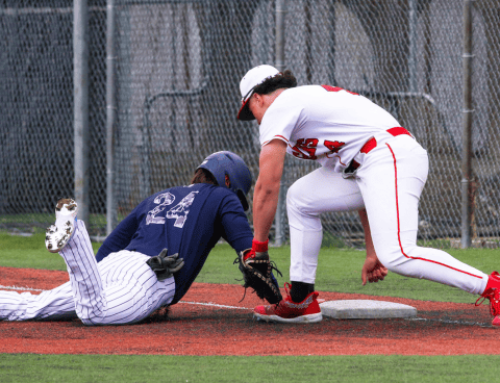Dealing With the Pursuit of Perfection in Baseball
Perfect performance is unattainable in any sport. However, the pursuit of perfection is particularly challenging in baseball, considering that a 70% failure rate at the plate is a measure of success. It’s not uncommon for ballplayers to have a great game or season, only to follow it up with a less than satisfying performance. (Check out Justin Verlander on Throwing a No-Hitter.)
Anyone can have a lucky day or even a lucky season, but there’s no such thing as a lucky career. Another factor making the pursuit of perfection more of a challenge is the pressure a great performance adds in terms of expectations. We want to remain at that high level moving forward, but we often experience a letdown during our next opportunity.
So how can athletes maintain a consistent high level of performance from year to year? (See How Control and Creativity Contributed to Matt Cain’s Perfect Game.) In my work with athletes in pursuit of perfection, I have noticed that the letdown phenomenon is usually due to one or more of the following factors.
Attention Shift
Often our focus shifts from process to outcome. We stop thinking about the little things it takes to be successful and worry about striking out and losing the game. (See Become More Clutch by Training Your Sports Focus.)
Critical Analysis
Athletes who experience this become more critical of their performance than they were before. For example, throwing first-pitch strikes 70% of the time was considered good last season, but now 70% is average. We develop a much more critical view of our performance based on the success we previously achieved. We forget about the things we did well and focus completely on what we need to change. (Read about how Positive Self-Talk Improves Performance.)
Outside Distractions
This is when we allow media hype, the opinions of others and public expectations to affect our performance. Players let extraneous factors enter their mind instead of focusing on the skills they need to execute to be successful. (See Eddie Johnson on Avoiding Distractions.)
Post-Performance Reflection
The best way to manage the letdown phenomenon is to have a strong and consistent mental approach. Being ready is one of the greatest ways to combat unproductive situations. I encourage athletes to write down their post-performance reflections, including:
- Facts and stats of your performance
- What you did well
- What you would like to improve both physically and mentally
- Reactions to your performance
- New challenge goals for the week
- Who can help you reach your weekly challenge goals
As you become more conscious of yourself and your performance, you can add more mental skills to your repertoire. Start by reflecting on your current performance. What patterns are you noticing and what effect are they having? To be your best consistently, you have to prepare to be your best. Are you doing all you can to be your best?
RECOMMENDED FOR YOU
MOST POPULAR
Dealing With the Pursuit of Perfection in Baseball
Perfect performance is unattainable in any sport. However, the pursuit of perfection is particularly challenging in baseball, considering that a 70% failure rate at the plate is a measure of success. It’s not uncommon for ballplayers to have a great game or season, only to follow it up with a less than satisfying performance. (Check out Justin Verlander on Throwing a No-Hitter.)
Anyone can have a lucky day or even a lucky season, but there’s no such thing as a lucky career. Another factor making the pursuit of perfection more of a challenge is the pressure a great performance adds in terms of expectations. We want to remain at that high level moving forward, but we often experience a letdown during our next opportunity.
So how can athletes maintain a consistent high level of performance from year to year? (See How Control and Creativity Contributed to Matt Cain’s Perfect Game.) In my work with athletes in pursuit of perfection, I have noticed that the letdown phenomenon is usually due to one or more of the following factors.
Attention Shift
Often our focus shifts from process to outcome. We stop thinking about the little things it takes to be successful and worry about striking out and losing the game. (See Become More Clutch by Training Your Sports Focus.)
Critical Analysis
Athletes who experience this become more critical of their performance than they were before. For example, throwing first-pitch strikes 70% of the time was considered good last season, but now 70% is average. We develop a much more critical view of our performance based on the success we previously achieved. We forget about the things we did well and focus completely on what we need to change. (Read about how Positive Self-Talk Improves Performance.)
Outside Distractions
This is when we allow media hype, the opinions of others and public expectations to affect our performance. Players let extraneous factors enter their mind instead of focusing on the skills they need to execute to be successful. (See Eddie Johnson on Avoiding Distractions.)
Post-Performance Reflection
The best way to manage the letdown phenomenon is to have a strong and consistent mental approach. Being ready is one of the greatest ways to combat unproductive situations. I encourage athletes to write down their post-performance reflections, including:
- Facts and stats of your performance
- What you did well
- What you would like to improve both physically and mentally
- Reactions to your performance
- New challenge goals for the week
- Who can help you reach your weekly challenge goals
As you become more conscious of yourself and your performance, you can add more mental skills to your repertoire. Start by reflecting on your current performance. What patterns are you noticing and what effect are they having? To be your best consistently, you have to prepare to be your best. Are you doing all you can to be your best?












